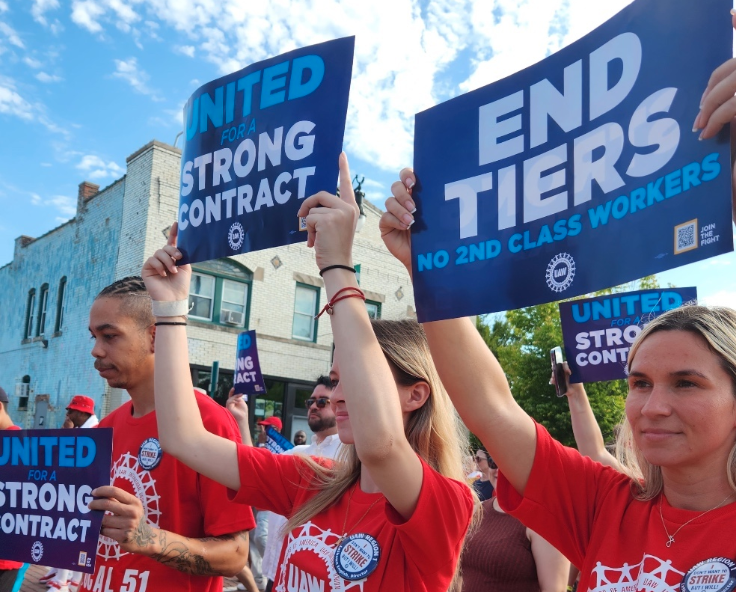NEWS
UAW Strike Against Big 3 Automakers Looks Increasingly Likely When Contract Ends Sept. 15
Published
1 year agoon

More From Auto Overload
-


6 Best High Mileage Motor Oils On The Market
-


Regulators Seek Recall of 52 Million Defective Airbag Inflators Made…
-


6 Popular Car Features That Will Never Be Seen Again
-


6 Strategies To Save At The Pump
-


Two Essential Truths Every Car Owner Needs To Know
-


Federal Regulators Order Tesla To Share Data On Autopilot’s Hidden…
-


10 Common Car Problems Every Driver Should Be Aware Of
-


8 Tactics To Deter Car Thieves
-


8 Easy Ways To Boost Fuel Efficiency
-


8 Easy Ways To Increase Your Car’s Value
-


Most Major Carmakers Admit They Sell, Share Your Personal Data,…
-


9 Things You Should Never Leave In The Car


6 Popular Car Features That Will Never Be Seen Again
Venturing into the market for a new car after some time can be overwhelming, given the rapid advancements in vehicle...


6 Best High Mileage Motor Oils On The Market
As vehicles age and accumulate miles, the demand for high-mileage motor oils grows significantly. These specialized lubricants are formulated to...


8 Easy Ways To Increase Your Car’s Value
If you’ve been contemplating selling or trading in your car, there are simple yet effective ways to enhance its value...


10 Common Car Problems Every Driver Should Be Aware Of
While many of us rely on our cars for daily transportation, we often do so without fully understanding the subtle...

